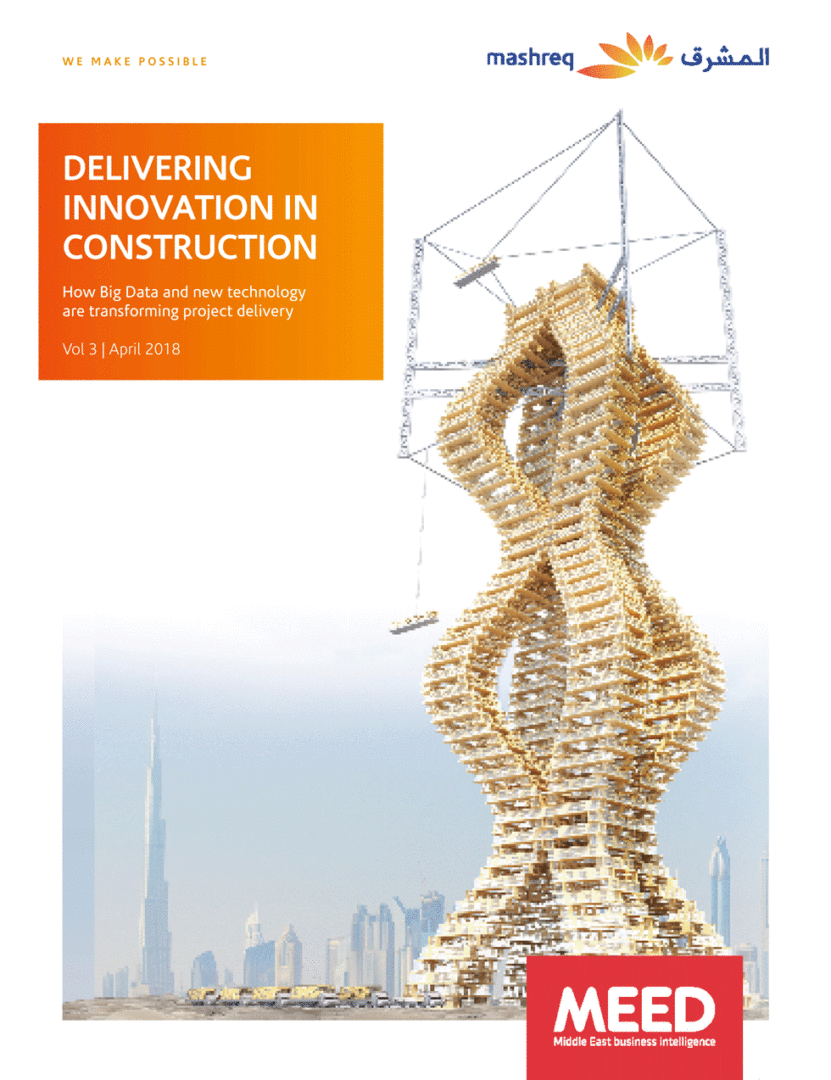Delivering innovation in construction

How Big Data and new technology are transforming project delivery
The construction industry has historically been reticent about technology investment, and the reasons are easy to understand. In the cut-throat world of construction, clients demand the lowest possible price for projects delivered in the least possible time. To win business, contractors must submit the lowest-priced tender bid, eroding their profit margins and leaving them with little left over to invest in long-term objectives.
This lack of strategic investment is unsustainable however. It undermines the competitiveness of construction companies, and results in projects being delivered late and over budget. It is also one of the principle reasons that the construction industry is synonymous with adversarial business relationships and contract disputes.
But things are changing. Around the world, architects, engineers, contractors and asset owners are recognising the benefits of digital technology, and are innovating not only the way in which they deliver work, but also how they work with each other throughout the process. The adoption of digital technology in the construction industry has reached a tipping point and few countries are better positioned to take advantage of this than the UAE.
Research by consultant McKinsey suggests that adoption of new technologies throughout the construction chain could deliver efficiency gains of up to 60 per cent. With some $800bn-worth of major projects planned in the UAE, the gains to the country will be huge. They will allow the UAE to achieve its diversification and employment goals more efficiently, and will empower the workforce to compete in the global marketplace.
Research by consultant McKinsey suggests that adoption of new technologies throughout the construction chain could deliver efficiency gains of up to 60 per cent. With some $800bn-worth of major projects planned in the UAE, the gains to the country will be huge. They will allow the UAE to achieve its diversification and employment goals more efficiently, and will empower the workforce to compete in the global marketplace.
Research by consultant McKinsey suggests that adoption of new technologies throughout the construction chain could deliver efficiency gains of up to 60 per cent. With some $800bn-worth of major projects planned in the UAE, the gains to the country will be huge. They will allow the UAE to achieve its diversification and employment goals more efficiently, and will empower the workforce to compete in the global marketplace.

In a new report – produced by MEED in partnership with Mashreq – we showcase some of the most inspiring innovations being implemented in construction projects around the world. The report provides case studies of how the adoption of new digital technologies is being applied across all the principle stages of the project delivery process, from early-stage design through to the construction and operational phases of a project.
One of the most important messages that recurs throughout the report is the benefit of increased investment in time and money at the front-end of the project process. The involvement of contractors and operators from the start of the design process ultimately produces better projects that run more reliably and are less costly to maintain.
The report looks at technology innovations from machine-learning robots that can continuously improve the efficiency of building processes to the world’s first 3D-printed concrete bridge. The report also examines the time, cost and safety benefits of collecting project data through the use of autonomous vehicles and drones to survey and monitor projects in dangerous locations.
Delivering Innovation in Construction provides anyone who is involved in the UAE construction industry with valuable insights into how digital technology can be applied to drive greater efficiency, safety and end-product quality on projects in the UAE.
Download the full report HERE.


